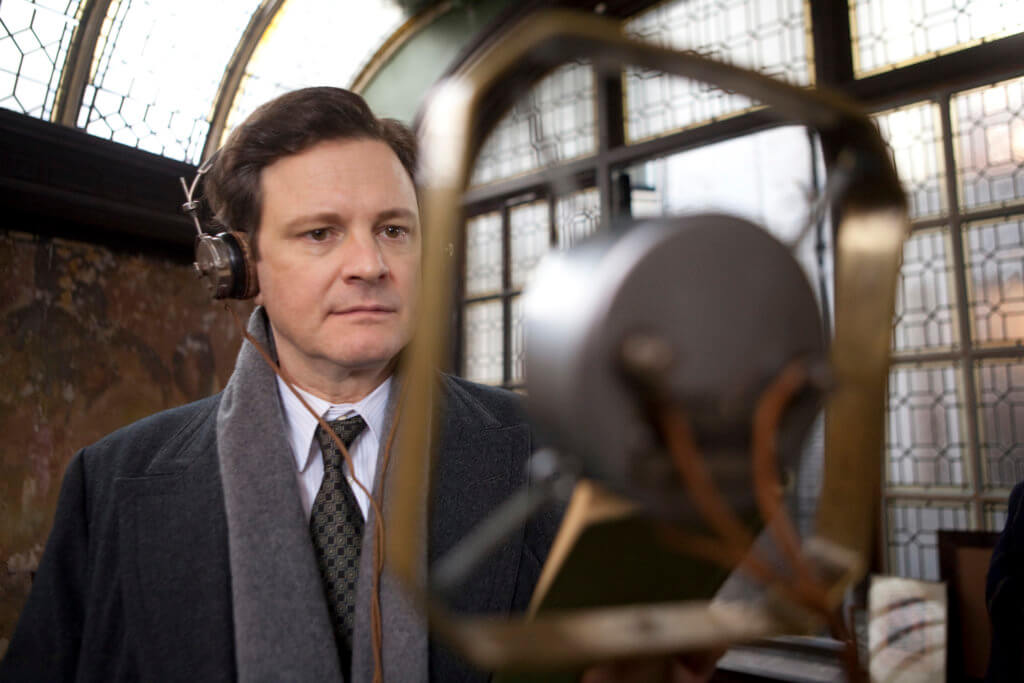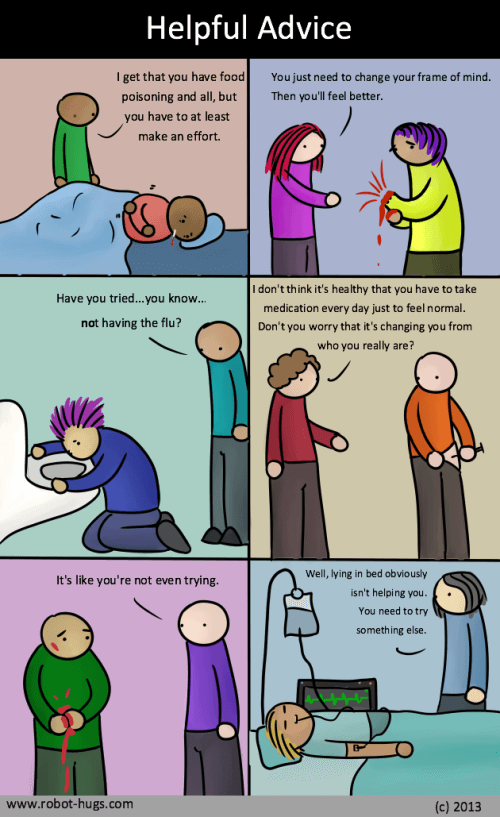Around six sessions into working with a client, the following conversation inevitably arises:
Client: "You know, I am so glad I started doing this. I've been so self-conscious about my way of speaking for so long. Now, I feel more confident, I'm talking a lot more...I feel so much better about interacting with people."
Me: "That's great to hear!"
Client: "I can't believe I didn't do this sooner! I love coming here." *Laughs* "But my spouse still doesn't know that I'm in speech therapy."
Broken Hips and Broken Lips
As I heard these statements repeated over and over, "My [insert closest confidant] doesn't know I'm in speech therapy," I began paying attention to how people generally talk about self-improvement or health-related endeavors. I noticed that people tend to be very casual and open about physical injuries and rehabilitation. "Yeah, I had to get knee surgery, so now I'm doing physical therapy twice a week for the next few months." Mental health and mental health treatment carries a much greater stigma, but advocacy and awareness efforts in recent years are breaking this down. It is not unusual or shocking to hear someone mention "my therapist says..." in conversation.
But speech therapy? Speech therapy, apparently, is the most shameful, secret-requiring self-improvement of them all. We aren't afraid to let people know that something is wrong with our arm or leg. We are slowly becoming more able to admit that we struggle with depression or anxiety. But to admit you have trouble talking, to an extent that you need some help with it, is a whole new level of vulnerability that not even a husband, sister, or daughter can be trusted with.
Speech and Self
There are a number of reasons why a person may have communication difficulties. It may be neurologic or genetic, like stuttering or apraxia. It may be developmental, such as a lisp or strained voice habits. Maybe there isn't anything specifically wrong with the speech, but someone experiences so much anxiety about speaking that the ability to communicate like a "normal" person just falls apart. Or, maybe you aren't even sure what's wrong, but you just know something is wrong.

COLIN FIRTH as Bertie (King George VI) in THE KING'S SPEECH. In cinemas Jan 7 2011
When people enthusiastically tell me that this is the most life-changing thing they've ever done, and that they haven't told their loved ones, I ask why. Here are a few things I've heard:
- I think we associate the way people talk with how intelligent they are. I don't want people to think I'm less competent because I have a speech problem.
- Speech issues are from childhood. It's embarrassing to admit that I still haven't grown out of this.
- I'm afraid my spouse will think I'm unattractive if I tell them about my speech.
- People obviously know about my speech problems, but I think they might view me differently if they knew I was in speech therapy.
- I told my friend/cousin/colleague I had started speech therapy, and s/he said, "Why? You talk fine! You don't need speech therapy." They thought it was weird.
As is evident from several of these statements, communication difficulties are often subtle. In many cases, simply admitting to others that you struggle with speaking is a huge step in and of itself. To share that you are actively seeking help, then, is an even greater hurdle.
Speaking Secrets
There is something poignantly ironic about the fact that communication by definition requires talking to another person, and yet talking to another person about the way we talk is an incredibly shameful topic. You desperately want to get better at talking to people, but only if no one finds out about these efforts at self-improvement.
The thing is, speech therapy is very EXCITING! Every week, clients sit down in my office and tell me about challenges they faced and overcame during the week, how they took risks, and feel so good now about their ability to do things they thought they could never do. Hearing these stories is by far the best part of my job! But, I am the only person who gets to hear these stories. I am both thrilled and frustrated by the fact that someone comes in beaming with pride, excitedly shares their story, and then feels the need to screw a lid on their accomplishment once they walk out of my office, because it can't be shared with anyone else.
The Big Deal
I always encourage clients to share their communication vulnerabilities with loved ones so that they can celebrate successes together, but I understand that the concept can be scary. Another issue for many is that they feel their loved ones and friends don't "get it", and truthfully "Why? You're fine" is a common response.

[Image from Robot Hugs]
Of course, I believe most people want to be supportive, and nobody intends to be invalidating or hurtful. One of the big challenges with communication issues is that people who don't have these concerns don't understand what the big deal is. "What's the big deal" with having a mild stutter or a lisp or a cracky voice? The fact is, even "mild" speech or language issues can cause significant anxiety, fear, depression, or any other number of strong, persistent, pervasive emotional struggles. You're incredibly excited to have your childhood best friend be your best man, but he's losing sleep for months because he has to give a speech in front of all these people on the most important day of your life.
Speaking and Listening

As much as I feel strongly about encouraging clients to share their positive, life-changing efforts with their loved ones, it's important for those loved ones to understand the impact and importance of their responses. You may not even be aware that your wife of fifteen years has a speech disorder, but it's something she's wrestled with her whole life, so don't discount her experience when she tells you that she's finally started to work on it. Even though your college buddy seems like a confident, successful, outgoing sales guy, he may still struggle with mini panic attacks when he has to introduce himself. A person's external symptoms rarely correlate to the intensity of their internal emotional experience.
And, while speech therapy is fun and exciting, but it is also a lot of work. Successful communication therapy requires constantly pushing yourself outside your comfort zone and facing fears and insecurities head-on. Empathetic support from family and friends is a huge ingredient for success in these situations!
Communicate
If you struggle with some aspect of your communication, you are not alone. (It may feel that way, but that's because everyone else is hiding it, too.) Shame and fear are the two most common emotions associated with speech disorders, and the way to address this is to "talk about it", to borrow a phrase from the mental health advocacy world.
And, if you're a confident, easy, comfortable communicator and someone tells you they struggle with speech...believe them. While speaking appears automatic for many people, in reality it is a complex, emotionally-laden activity that most people struggle with in some way or another. And, how a person is affected by their communication abilities is often very different from the level of ability itself.
In sum: let's start talking, and listening, about talking.
